Care England 2026 Conference & Exhibition

Early Bird delegate tickets are on sale!






Care England 2026 Conference & Exhibition

Early Bird delegate tickets are on sale!





This month, we have seen a cabinet re-shuffle, which allows the care sector to re-engage with politicians and build a new and better understanding of the care sector and what we deliver to society. The departure of the Deputy Prime Minister, who was driving the Employment Rights Bill, will now give us an opportunity to engage with the Secretary of State for Business and outline the impact this legislation could have on the sector. Whilst we all support higher remuneration for our hard-working colleagues, this cannot be achieved without significant extra money going into the care sector. If the Government thinks that we can absorb this huge amount of extra cost, it is sadly mistaken. Social care is already reeling from the cost implications of the higher national insurance contributions, and these extra costs, combined with the general inflation rate and higher energy costs, are making it incredibly difficult for some organisations to continue. I hope this message has reached the Chancellor, and when she delivers her budget in November, I would like to see her reduce the burden of tax and costs on the care sector and deliver a genuine budget for growth. Despite her rhetoric, her last budget has resulted in additional costs for businesses and economic stagnation.
This month also marks the beginning of Baroness Casey’s direct engagement with the sector, and I sincerely hope that she will develop a vision for social care that underscores its importance in the lives of the people we support, and their families and communities. The Government’s aspirations for the NHS and the 10-year plan cannot be delivered without an integrated approach to health and social care, and some of the money that is now in the NHS needs to be transferred across to social care providers who are good at delivering support for people with long-term conditions.
Social care is an essential part of a neighbourhood-based approach to health and care, and the 10-year plan should provide an opportunity to break down barriers and focus on outcomes. The 21st century is characterised by long-term conditions, many of which are not curable, so social care is an essential part of the system that helps people live well and participate in society, despite the challenges they may face from disability or longterm health conditions. Social care also has a great track record when it comes to coproducing services with people and communities, and it is vital that the entire system harnesses this expertise and delivers much more person-centred support. This approach to delivering support enables people to maintain their lives rather than going into acute need. Everything the Government claims they want to see the NHS deliver is very dependent on having social care at the centre of the agenda. I hope Lady Casey will not only see that but will put integration and positive outcomes at the heart of her vision for a National Care Service.

Serving Stability: How Fixed-Price Menus Streamline Your Budget
PAGE 6
Why generic financial software often falls short for social care organisations
PAGE 12
Employment Rights Bill: What care providers need to know this autumn PAGE 14
The Uniform: It Matters More Than You Think
PAGE 21
Dealing with DBS results in the care sector
Professor Martin Green OBE
Chief Executive: Care England
DH: Independent Sector Dementia Champion
PAGE 26
I’m honoured to be stepping into the role of Co-Chair for the Southeast Social Care Nursing Advisory Council (SE SCNAC). It’s a privilege to join such a passionate, motivated group of professionals, all deeply committed to improving social care nursing.
Our recent meeting was a powerful reminder of the energy and dedication that drives this council. The conversations were rich with ideas, collaboration, and a shared vision for the future. I left feeling inspired and excited for the journey ahead.
As I begin this new chapter, I’m looking forward to supporting the integration of social care with health in line with the NHS 10-Year Plan, advancing the workforce strategy for student and newly qualified nurses, and amplifying the voices of nurses working in social care. Our sector holds so much wisdom, resilience, and innovation, and I want to help ensure it is visible, valued, and nurtured.
I’m eager to champion initiatives that will strengthen clinical diversity, build a resilient workforce capable of meeting the growing complexity of care needs, and create a supportive environment for all nurses.
This role is about listening, learning, and lifting others up. Together, I believe we can shape a future where social care nursing is recognised for its vital contribution, and where every nurse feels empowered to make a difference.
Thank you to everyone who has welcomed me so warmly. I’m excited to work alongside Chief Nursing Officer, Andrea Lewis, my SE Co-Chair Scarlett MacDonald, my predecessor Zoë Fry, and all our SCNAC members to contribute to the incredible work already underway.

Pat Conteh, newly appointed Co-Chair for the SE SCNAC
SE SCNAC Co-Chair, Scarlett MacDonald added ‘I am absolutely delighted that Pat will be joining our team as she brings an extensive knowledge of complex home care issues. She is a delight to work with, and I look forward to an exciting future working together.
Zoë Fry, comments ‘Since 2023, I have been part of the original SCNACs and have been privileged to Co-Chair the Southeast with Scarlett. I’m delighted to share that the Outstanding Society (OS*) has now secured funding from Skills for Care to oversee the SCNACs, a role I will lead on as Director of Nursing for the OS. It has been a joy working alongside Scarlett, Andrea, and our council members, and I am thrilled to welcome Pat as my successor. I look forward to following the Southeast’s journey with great pride and anticipation.
SCNACs are part of a national initiative supported by the Department of Health and Social Care (DHSC) and Skills for Care and delivered through the OS. Each regional council acts as a vital bridge between frontline social care nursing professionals, our colleagues in the NHS and national decisionmakers.
For more information and opportunities to get involved us the QR code below or clickhere, contact Sonia at the OS:Admin.SCNAC@ theoutstandingsociety.co.uk, or speak to your regional Co-Chair. Please come and see our SCNACs Co-Chairs at the Nursing Lounge, Stand B10 at the Birmingham Care Show on 8th and 9th October 2025. Please click here to get your FREE ticket.

1 Large Pumpkin
2 Onions
5 Garlic Cloves
3 Tbsp Olive Oil

Serves 10 Prep 25 mins Cook 55 mins Difficulty 2/5 topped with crispy chilli pumpkin seeds
3 Sprigs Fresh Rosemary
2 Litres Vegetable Stock
400ml Double Cream
Salt & Pepper, to taste
For the garnish:
150g Pumpkin Seeds
2 Tbsp Chilli Oil
1. Deseed and peel the pumpkin and chop into chunks. Peel the onions and chop into quarters
2. Place the pumpkin, onion, rosemary and whole garlic cloves on a baking tray, toss with olive oil and season well with salt and pepper
3. Roast in the oven for 40 minutes, until the pumpkin is golden and caramalised
4. In a bowl, mix the chilli oil, pumpkin seeds and season with salt Transfer to a separate tray and roast in the oven for the final 10 minutes until golden.
5 Squeeze the roasted garlic from the skins once cooled slightly. Discard the rosemary stalks.
6 Transfer the vegetables to a large pot, add stock and bring to a simmer for 10 minutes.
7. Remove from the heat, then blend until smooth, adding the double cream half way
8. Portion the soups, sprinkle over the seeds and stir through a little cream
Creed Foodservice are sharing a monthly seasonal soup recipe showcasing British produce To be in with a chance of winning a Creed cookbook, tag us both in your recreation of the recipe on social media!


By Richard Woodward, General Manager of Care Homes at apetito
According to our recent research carried out in partnership with Care England, a staggering 98% of care homes are still experiencing cost increases month-onmonth.
This economic turbulence can be seen across a range of aspects of care, with homes battling rising energy costs and food inflation, labour challenges and unpredictable supply chains – putting managers under increasing pressure to maintain standards and continue delivering high-quality care.
Our research also found that 71% of homes have been forced to make operational or workforce changes because of mounting cost challenges, demonstrating the significant impact being felt across the sector – turning monthly budgeting into a guessing game.
However, it is imperative that catering provisions do not suffer at the hands of this financial strain.
Having reliable and predictable catering costs can make a real difference to care homes, allowing managers to confidently plan a consistent meal offering that supports both the physical and mental health of residents.
That is why the approach of fixed-price menus can help care homes to take back control of their catering budgets and shield themselves from market volatility, offering a stable per-resident-per-day pricing that doesn’t change, regardless of external shifts.
Most importantly, residents benefit from consistent, highquality meals that support their health and wellbeingwithout last-minute changes or shortages. Staff morale also improves, and operations can run more smoothly.
The apetito solution
At apetito, we believe that financial strain should never stand in the way of delivering great food and care. That is why we are introducing brand-new fixed-price menu

model, providing our customers with that peace of mind on catering costs and more stability on budgets.
Through working closely with partnering care homes, every menu will continue to be crafted to meet the unique needs of each setting and have options that cater to the nutritional needs and personal preferences of every resident. From everyday favourites to vibrant cuisines, one thing will remain constant: the price. Our fixed costs mean no surprises or hidden charges, just dependable value.
This will also include our full Specialist Nutrition range, making it simple to support residents with complex dietary needs, such as dysphagia, allergies or malnutrition, without extra strain on staff or kitchen resources.
Importantly, steady costs don’t mean cutting any corners when it comes to food quality. We only work with suppliers who meet our high standards for quality and assurance, and we’re proud to support the British food and farming industry.
Resident choice should never be compromised in pursuit of affordability. Instead, care homes can be focused on what matters most: delivering an excellent dining experience, day in, day out.
To find out more about how apetito’s fixed-price model can support catering operations at your care home, visit apetito.link/CE
Get all the comfort of a home-cooked mealwithout the hassle.
Delicious and nutritious meals crafted by chefsjust like a comforting home-cooked meal
Save kitchen time and reduce staff strain with ready-to-cook meals
Tailored nutrition for every need—from IDDSI to allergen-safe and vegetarian options
Reduce waste, manage costs, and streamline your kitchen operations


Bring home-style meals to your care home Call 0808 239 2399 or visit carehomes.apetito.co.uk


Across the care sector, providers face a daily challenge: how to create environments that balance safety, dignity, and independence for residents. Falls prevention, pressure care, and staff wellbeing remain at the forefront of concern, yet many homes struggle to find solutions that are both practical and sustainable.
Falls are one of the most common incidents in care homes, with serious implications for residents’ health, recovery, and quality of life. Pressure ulcers present another challenge, often requiring intensive treatment and placing additional strain on staff. Add to this the ongoing pressures of staff shortages and rising operational costs, and it becomes clear why providers are searching for solutions that not only address clinical outcomes but also support the workforce delivering care.
At Accora, we believe that the right equipment, designed with insight and empathy, can make a transformative difference. Our approach focuses on identifying the root causes of risk and providing practical, evidence-based solutions.
Take falls, for example. Traditional hospital-style beds often place residents at unnecessary risk when they try to mobilise independently. Our FloorBed range was developed to minimise this risk by lowering residents closer to the floor, significantly reducing the severity of falls. At the same time, the design supports carers in delivering safe, efficient care without compromising dignity or comfort.
Similarly, pressure care is a challenge that cannot be solved by a single product alone. That’s why our range of dynamic mattresses and seating solutions is developed in close partnership with care providers, ensuring they meet real-world needs. By supporting correct posture and effective pressure

redistribution, these solutions help to prevent complications and promote greater comfort for residents.
Crucially, these innovations are not just about reducing risks- they are about enabling independence. Residents benefit from environments where they can move, rest, and engage with daily life more safely. Carers benefit from reduced strain and equipment that supports, rather than hinders, their work. Providers benefit from fewer incidents, better outcomes, and improved staff retention.
The care sector is under immense pressure to do more with less, but small, carefully chosen changes can deliver significant impact. By listening to the challenges faced by frontline staff and responding with practical, adaptable equipment, we aim to give care providers confidence that their environments are safer, more dignified, and better equipped to meet future demands.
For further information and support, contact Accora at www.accora.care or email info@accora. care.
As part of a national legal firm with over 150 specialist health lawyers, we cover all aspects of health care related law and practice.
We have a long history of providing market-leading legal advice to care providers. Our large team of specialist and experienced care homes lawyers advise our regulated care business clients daily across wide-ranging areas including:
▪ Inquests and inquiries
▪ Safeguarding and investigations
▪ Employment and HR advice including immigration
▪ Refinancing and restructuring advice
▪ CQC issues and regulatory advice
▪ Commercial disputes and debt recovery

To find out more about the care services we can offer, contact Julia Appleton, Partner, at julia.appleton@weightmans.com
weightmans.com
In an enforcement case, the Information Commissioner’s Office (ICO) has successfully prosecuted the director of a Yorkshire care home for failing to comply with a data subject access request (DSAR), sending a clear message to the care sector about the legal obligations surrounding requests for personal data under the Data Protection Act 2018.
Under data protection law, individuals are entitled to ask for a copy of the personal data, essentially information about that individual, which an organisation holds about them. Organisations must usually respond within one month, although this period may be extended by two further months if the complexity of the request justifies an extension.
In this case, Jason Blake, director of Bridlington Lodge Care Home, appeared before Beverley Magistrates Court and was found guilty of having blocked, erased and concealed records held by the care home about a resident. He was fined £1,100 and ordered to pay additional costs of £5,440.
The case concerns a DSAR submitted in April 2023 by a woman seeking information about her father’s care at Bridlington Lodge. Acting under a Lasting Power of Attorney, she requested access to incident reports, CCTV footage, and care notes. However, Mr Blake refused to respond, and a complaint was made to the ICO. During the ICO investigation, he failed to provide any explanation for his refusal to comply with the DSAR.
This prosecution is a reminder that care providers must uphold individuals’ rights under the data protection legislation. DSARs are a cornerstone of data protection law, giving individuals the right to access personal data held about them. In the context of adult social care, this includes care records, safeguarding reports, and other sensitive
information.
The ICO’s decision to prosecute reflects the seriousness of the breach. It also underscores the importance of transparency and accountability in care settings, particularly when families are advocating for vulnerable loved ones.
For care providers, this case highlights the need for robust data governance policies and processes to ensure DSARs are managed promptly. It is a criminal offence under section 173 of the Data Protection Act 2018 for organisations to alter, deface, block erase, destroy or conceal information that has been requested pursuant to a DSAR. Failure to respond properly to a DSAR not only risks enforcement action but undermines trust with residents and their families.
If you need support reviewing your DSAR policies, training staff, or responding to complex requests, contact Helen Tringham at Mill & Reeve.


We guide clients through every stage of the inquest process, including:
Preparation of statements and evidence
Supporting staff in preparation for a hearing
Attending court both at pre inquest reviews and the inquest
Post inquest learning and risk management
Support and guidance with media attention and reputational risk
To find out more please get in touch.
Neil Ward Partner, Inquests and Healthca neil.ward@mills-reeve.com 07918287141

Fran Kirke, VP of Care at OneAdvanced, discusses the importance of modern finance software that truly understands the needs of care.
Budgets are tight and under constant scrutiny, regulations change, and the stakes couldn’t be higher— for financial stability and, ultimately, the quality of care provided. Yet, too often, organisations are relying on generic finance software designed for businesses that don’t face the unique challenges of the care sector.
And for many providers, it’s becoming more and more apparent that finance, spend, and governance systems which aren’t built with this sector in mind could well be creating more problems than they solve. From gaps in functionality to the inability to adapt to sector-specific needs, generic solutions often fall short of what care organisations truly need.
The complexities of care finances
Choosing the right software begins with understanding just how intricate care finances really are. As you know only too well, unlike many commercial organisations, the financial operations in care are far from straightforward.
You’re managing costs linked to unique client needs and shift rates, dealing with diverse funding sources— from local authorities to private payers—and juggling tight budgets with rising operational pressures. Layer in contract management, compliance, and auditing obligations, and the complexity quickly becomes apparent.
Generic financial software, while often robust for general business needs, rarely offers the level of nuance required to handle these growing challenges. A care provider may even be finding themselves attempting to “force” generic software to work for them, creating inefficiencies and risks that no care organisation can afford.
Why modern, sector-focused software can be critical in care
The real advantage of finance software for care lies in its ability to align with your organisation’s unique requirements. Finance, spend, and governance systems

designed to consider the needs of the care sector understand the challenges you face and the solutions that work.
Consider functionalities like real-time financial analytics, streamlined purchasing, or dashboards that consolidate your risk data from multiple care locations into one accessible view. These aren’t luxury features; they’re essentials for many care organisations looking to thrive in such a high-pressure environment.
And let’s not forget that scalability and flexibility play a crucial role too. As your organisation grows or regulations evolve, you need software that can evolve with you. Modern platforms are built to adapt, often allowing you to add modules or scale up functionality without overhauling your entire system.
The future is purpose-built
Those that stick with generic software may well find themselves outpaced by evolving demands, and the lack of tailored functionality can cost you far more—in time, money, and missed opportunities.
I truly believe that the future of care lies in purpose-built solutions that understand the complexity of your work and give you the tools to overcome it. It’s time to demand more from your finance, procurement, and governance software, because your tech should be working as hard as you do.
For more information, please visit: https://www. oneadvanced.com/campaigns/care/financialmanagement-for-social-care
The pressures facing the UK care sector are well known. Tight margins, high demand, and complex funding streams leave many providers operating in survival mode. On top of delivering safe, highquality care, managers are also juggling endless back-office responsibilities; they’re scheduling shifts, onboarding staff, handling payroll, paying suppliers, and reporting to commissioners. It’s a workload that stretches every hour and every resource to the limit.
Among those tasks, payments often seem routine, yet they quietly absorb huge amounts of time. In many care settings, paying staff and suppliers still involves manual processes and disconnected systems. Managers export timesheets, re-enter figures into banking portals, double-check approvals, and reconcile payments by hand. It’s repetitive, time-consuming work that leaves little space for anything else.
And when something goes wrong, for example a mistyped bank detail, a missed invoice, a payroll error, it sets off a chain reaction of stress. Research shows 60% of UK employees have spotted errors on their payslips, 40% have been paid late, and one in five have resigned after experiencing repeated payroll issues. For frontline carers living on tight budgets, inaccurate or late wages is more than an inconvenience - it’s a reason to leave.
That’s why payment processes aren’t just a finance concern; they’re a people concern. Manual systems create two problems at once: they consume the limited time of managers and administrators, and they risk undermining staff morale. Every hour spent wrestling with spreadsheets or chasing down payment approvals is an hour lost. And when payments are late or incorrect, staff experience it as a lack of reliability from their employer. In a
sector already struggling to retain people, that matters.
Reversing this doesn’t require a massive digital overhaul. Payment automation offers a practical starting point. By integrating payroll, invoicing and payment systems, care organisations can cut hours of admin each week and ensure payments are accurate and on time. An accounting firm working with care clients found that payroll payments which once took hours could be completed could be sent out in just 90 seconds through automation. That kind of speed and reliability sends a clear message to staff: you are valued, and you can rely on us.
The benefits ripple out. With fewer payment errors to fix, managers can spend more time improving scheduling, supporting staff wellbeing, or developing new services. With real-time visibility of cash flow, they can plan ahead instead of constantly firefighting. And when administrative chaos recedes, staff feel less burnt out and more able to focus on what drew them to care in the first place - delivering support to those who need it.
Fixing payment inefficiencies will not solve workforce shortages alone, but it can create the conditions to retain and nurture the staff you have. Every hour of admin reclaimed is an hour that can be invested back into your people. And in a sector where people are everything, that time could make all the difference.
To learn more about how care providers are modernising payments, visit https://www. modulrfinance.com/care-payments
As Parliament returns, the Employment Rights Bill is back in focus, bringing significant changes that will directly impact health and social care providers.
The Bill has passed through the House of Lords with key amendments and is now back in the Commons. While the Government could reject these changes, political shifts and sector pressures mean the final version is still uncertain. Royal Assent is expected this autumn, with implementation phased over the coming years.
• Zero-hours contracts - Employers may be required to offer guaranteed hours after a qualifying period. This is particularly relevant in social care, where flexible contracts are common.
• Day-one rights - New starters will gain protection from unfair dismissal and the right to request flexible working from day one.
• Statutory Sick Pay - SSP will be payable from the first day of illness, with the lower earnings threshold removed and coverage extended to more low-paid care workers.
• Harassment protections - Employers must take proactive steps to prevent harassment, including from people being supported, which will involve updating policies and training.
• Fair pay and conditions - A new Adult Social Care Negotiating Body will support standardised pay and career progression across the sector.
Review your contracts and policies to ensure employment terms reflect upcoming legal changes.
Plan for workforce costs and budget for guaranteed hours and expanded sick pay.
Train managers with the knowledge of new legal duties.
Engage with consultations and sector guidance as details emerge.
To help you prepare, our Employment Law Update 2025 will cover the Employment Rights Bill in detail, alongside other key developments from the past year. This session is designed to support care providers in understanding and implementing the changes effectively.
Sign up here: Webinar: Employment law updateNavigating changes in 2025 and beyond – Anthony Collins Solicitors
You can also subscribe to receive our Employment Rights Bill updates, delivered straight to your inbox.





In long-term care, reduced mobility is often seen as a natural consequence of ageing, frailty, or complex health conditions, but what if we could challenge that assumption? What if the very equipment designed to support residents, especially their beds, could help prevent reduced mobility and promote independence?
Reduced mobility doesn’t just lead to pressure injuries or muscle loss, it can erode a person’s sense of self. The inability to reposition, sit up independently, or transfer safely can leave residents feeling trapped, anxious, and dependent.
For some, the bed becomes their world, and when that world restricts movement, it can accelerate cognitive decline, increase agitation, and diminish quality of life. Numerous studies show that preserving mobility in older adults improves overall wellbeing, reduces the risk of falls, pressure injuries, and incontinence, and lessens the burden on caregivers. That’s why we’re rethinking the bed as an active partner in care, not just a place to rest, but a tool to support movement, safety, and dignity.
Purposeful frame design: The BiNetic® frame maintains body alignment during bed adjustments, easing sitting and preparing for standing while reducing strain. Together with the Ergoframe®, which creates pelvic space during repositioning to relieve pressure and discomfort, these designs encourage more natural, independent movement, supporting residents’ mobility and helping preserve physical function.
Flexible side rails: supporting fall prevention and acting as mobilisation aids to help residents move safely and independently.

Mobilisation Aids: like the intuitive Mobistick build confidence as an ergonomic handhold supporting stable sitting or standing. Rotatable, attachable on either side, and retrofittable, purposefully designed to promote self-mobilisation and confidence.
Stable bed height and positioning: allow beds to be raised or lowered to align with transfer equipment and support sit to stand workflows minimising physical effort and reducing the risk of strain or injury.
Automatic Positioning: Such as ‘comfort seat’ allows better in-bed positioning to support digestion and respiratory outcomes and offering more comfortable, dignified and inclusive levels for engaging with others.
Digital integrations: are increasingly paired with bed systems to prevent, not just react to falls. Offering real-time insights into resident movements, moisture levels and even weight, enabling early intervention.
Movement fosters confidence, reduces distress, and helps maintain a sense of identity, purpose and general quality of life. Families notice the difference, with fewer signs of agitation, more smiles, and a stronger sense of presence.
For care teams, preserving mobility means fewer incidents, less manual handling, and more time spent on meaningful interaction rather than reactive care. It creates a safer, more dignified environment where staff can focus on what matters most: person-centred care.
As care environments evolve, we must move beyond seeing beds as static furniture; instead, embracing them as dynamic tools that promote mobility, dignity, and independence.
WI-BO design beds that don’t just support residents but empower them. Discover more: https://www.wi-bo.com/en-WI
Radar Healthcare is the platform for a healthcare organisation, it’s been a real improvement across the board in terms of the systems that we’re using”
James Haggarty, Exemplar Health Care

SCAN TO FIND OUT MORE:
Dementia care is one of the most profound responsibilities in our sector. Every day, care teams bring knowledge of symptoms, progression, and clinical needs to their work. But it is often the understanding of what those realities mean for each individual that turns good care into exceptional care. When knowledge and understanding come together, the outcome is connection, comfort, and the assurance of being recognised as a person, not just a diagnosis.
‘Knowledge and Understanding of Dementia Care’ is the first of nine key focus areas in the NaDCAS Framework. In our first article with Care England
More than Just a Diagnosis: Understanding Dementia Care, we explored how strengthening this principle supports teams and the people they care for. NaDCAS helps build a bridge between knowledge and understanding, from practical guidance for providers to nurturing environments where insight and empathy are an integral part of everyday practice.
Outstanding dementia care is not about doing more; it is about focusing on what matters most for each person. It may mean recognising that someone walking the corridors is seeking reassurance rather than “wandering,” or noticing that eye contact and a smile carry just as much weight as a completed medication round. By nurturing understanding alongside knowledge, care becomes calmer, safer, and more centred on the individual.
The NaDCAS Framework for Dementia Care, developed in partnership with leading experts, practitioners, and people with lived experience, outlines nine focus areas to guide dementia care providers. Its purpose is clear: to turn best practice into everyday practice, helping create homes that feel safe, supportive, and genuinely welcoming.
NaDCAS accreditation is more than a badge of compliance; it is about a care provider’s culture, leadership, and commitment:
• For people living with dementia, it means dignity, comfort, and emotional security.
• For families, it brings peace of mind, knowing their loved one is cared for with expertise and compassion.
• For care teams and providers, it builds confidence, motivation, inspection readiness, and reputational strength.
NaDCAS accreditation offers a practical and holistic approach that works with the resources providers already have, embedding understanding into daily practice and creating long-lasting improvement.
NaDCAS will continue to share more about how our Framework’s nine focus areas support services. Our upcoming webinar on 25 November will bring together leading voices in dementia care to reflect on how the Framework is already being applied in practice.
In the next issue of the Care Agenda, we will introduce Waiting for the Bus - a unique training resource co-authored by NaDCAS Senior Partner Sam Dondi-Smith and Professor David Sheard. This powerful tool brings the lived experience of dementia to life for care teams, helping deepen understanding.
Take the next step today by exploring the NaDCAS Framework and discovering how it can support your service.
Visit www.nadcas.org, or contact our Director of Partnerships and Operations, Claire Reading, at claire@dementiaaccreditation.org or 07982 368163.
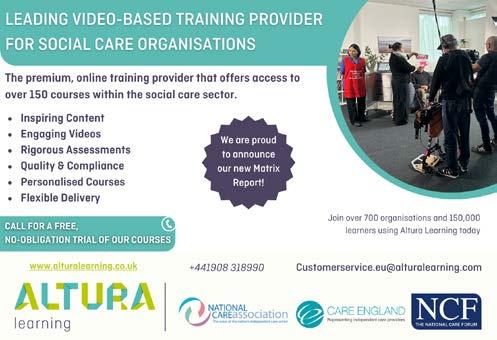
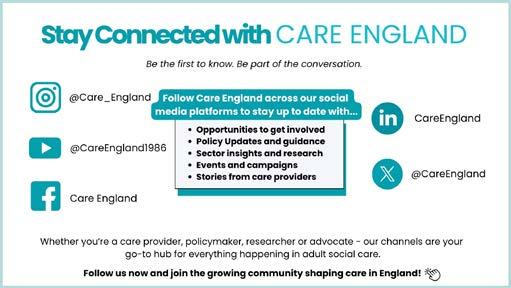
is a global leader in environmental solutions, specialising in water, waste and energy management. With over 160 years of expertise, we partner with UK social care facilities to deliver essential services ensuring safe, compliant operations. For care homes, we provide comprehensive solutions including clinical waste management, water treatment and energy efficiency. We understand care settings’ unique needs and support Care England members with cost-effective, environmentally responsible services maintaining highest care standards.
Commercial waste services:
• General Waste Collection
• Mixed Recycling
• Food Waste Collection
• Glass Collection
• Paper and Cardboard Recycling
• Confidential Waste Disposal
• Clinical Waste Management
• Hazardous Waste Collection
• Bulky Waste Removal
East Sussex Healthcare NHS Trust and Lincolnshire Partnership Foundation Trust (LPFT) both partnered with Veolia to enhance waste management. East Sussex achieved 30% increased recycling, 20% reduced general waste, and 100% compliance through ward-level recycling points and Environmental Champions. LPFT expanded recycling across all 26 units, saved 19.5% on disposal costs, and created innovative projects like a greenhouse from 1,035 recycled milk bottles. Both partnerships, starting in 2011-2012, delivered cost savings redirected to patient care, improved sustainability awareness, and reduced carbon footprints through comprehensive training programmes and performance tracking systems.
Testimonials in healthcare: https://veolia.showpad.com/ share/7I2kHyqlbFGm6lbUjtQ49
One of the leading social care providers in the UK has been our valued partner since 2019. Our collaboration began with 23 sites and has expanded to 36 in 2024. We provide comprehensive waste management services including
General Waste, Dry Mixed Recycling (DMR), Card, Food and Glass collection.
April 2019 - Partnership initiated with 23 sites; initial recycling rate at 28%
• April 2020 - £65k savings achieved through increased recycling and schedule optimisation; partnership expanded to 36 care homes; quarterly calls established with Regional Directors and Property Teams to review the escalation process for queries
• May 2021 - New contract signed; additional £14k savings achieved; 100% landfill diversion achieved across all sites
• October 2021 - League Tables project improved 13 lowest-performing sites; webinars and recycling guides implemented; £5k savings generated
• August 2022 - 42% recycling rate achieved through improved recycling at 12 sites; recycling rates increased to 48%
• August 2024 - Contract renewed
By increasing the organisation’s recycling we have reduced the impact of future legislative taxation through the forthcoming ETS legislation.
A three-year roadmap has been developed by the organisation’s Account Manager, focusing on our core values and commitment to Ecological Transformation.
Key initiatives include:
• Ensuring compliance with future legislation (ETS)
• Implementing redundant uniforms and textiles recycling
• Developing plastic packaging projects
• Expanding confidential waste recycling
• Conducting medical packaging recycling trials
• Launching a hard plastic project to create benches and flower beds for use in communal areas that the residents can enjoy
• Continuing schedule optimisation efforts
Our forward thinking approach aims to maintain costeffectiveness whilst promoting environmental responsibility across the healthcare sector. Kellee Wilkes - National Development Manager, E. kellee.wilkes@veolia.com
The world of social care is changing fast — and not just for the people receiving it. Behind every service are teams of professionals working longer hours, shouldering higher expectations, and facing growing pressure to stay well while delivering high-quality care.
Amid conversations about retention, wellbeing and workforce culture, one factor is often missing: what staff wear to work every day. It might seem small, but it matters. Uniforms are not just clothes. They are what people move in, work in, and rely on through the toughest moments of their shifts. When they are heavy, restrictive or badly fitting, they can add strain. When they are supportive, breathable and easy to move in, they help people give their best.
At alsico, we wanted to understand this connection better. So we spoke to care workers across the UK about how uniforms affect their comfort, confidence and performance. The results were clear: fit and fabric influence not only how people feel, but how effectively they can do their jobs. It confirmed what our decades of experience have shown us — uniform design is about far more than appearance or compliance.


But uniforms are only one part of the picture. This research fed into a wider report we are publishing this October, exploring unmet needs across the care sector. We know the industry is stretched, and from speaking directly with care teams we’ve seen there are opportunities to do more — often through changes that cost little or nothing, but bring real value. Our aim is to make it easier for organisations to spot these opportunities and act on them. The full report will be free to download and is designed to help leaders support their people more effectively.
We’ve been outfitting workforces for nearly a century, and our in-house Alsico Academy constantly explores ways to improve how workwear performs. Drawing on what we learned from this research, we’ve developed a new fabric technology created specifically for modern care settings. It is lightweight, breathable, soft and flexible — designed to stretch and recover while using recycled and biobased fibres to reduce environmental impact. Above all, it’s made to help staff stay comfortable and focused throughout long, demanding shifts.
This innovation builds on our wider role in transforming healthcare workwear, including manufacturing the new NHS National Healthcare Uniform — one of the largest standardisation programmes of its kind in the UK. Projects like this have shown how powerful it can be to bring people together around a single goal: workwear that supports those who care for others.
Learn more about the report here: www.alsico.com/uk/ unmet-needs-in-the-care-sector-sign-up-form
By Iain Corrigan, Commercial Director at CoolCare
Staff retention continues to be one of the most pressing issues in social care. With demand for services growing and staffing challenges persisting, care providers must prioritise ways to improve employee satisfaction, reduce turnover and foster long-term commitment. While pay remains important, other factors like flexibility, recognition and reducing admin burdens – play a crucial role in retaining staff. This is where technology can make a significant impact.
Rigid rotas and limited input into shift patterns often leave care staff feeling disempowered. Many join the sector driven by a passion for making a difference – yet a lack of flexibility can lead to stress and burnout. Modern workforce management tools give staff more control, allowing them to view rotas, swap shifts or pick up additional hours through intuitive mobile apps.
For instance, care homes using workforce scheduling tools help staff to self-manage availability and even volunteer for unfilled shifts – often without a manager needing to intervene. This sense of autonomy can significantly increase job satisfaction and help build a workplace culture where staff feel valued and trusted.
Alongside flexibility, financial wellbeing plays a crucial role in retention. Many care staff rely on overtime or bank shifts to support their income, but traditional payroll systems delay access to earned wages. Integration with Earned Wage Access providers like Wagestream gives employees the ability to access a portion of their wages before payday – reducing financial pressure and improving retention.
Agency staffing is often a last resort, bringing higher costs and disruption to continuity of care. Digital scheduling tools can help managers reduce this dependency by making open shifts instantly visible to qualified internal staff. In-built notifications and shift incentives can be used to proactively engage the existing team – helping fill gaps and improve morale without resorting to external support.
Technology also supports stronger manageremployee relationships – another key factor in retention. When managers spend less time buried in paperwork, they have more time to coach, support and listen to their teams.
With admin software, tasks like supervision tracking, compliance reminders and training records are all automated. Managers are prompted when actions are due, helping ensure staff development and recognition don’t fall by the wayside.
Retaining staff starts with hiring the right people and helping them succeed early on. Applicant Tracking System streamlines the recruitment process, keeping candidates engaged and speeding up hiring decisions. Once onboard, digital checklists, e-learning tools and structured mentoring help new employees settle in quickly and confidently, reducing early drop-out rates.
Ultimately, by reducing admin burdens, offering more flexibility and improving communication, technology helps care homes not only retain their workforce, but create an environment where staff feel valued, supported and empowered to thrive.
For more information on CoolCare, visit www. coolcare.co.uk
Proven

“Nourish creates a digital collaboration space that enables our teams to work together, it’s genuinely life changing stuff.” Graham Farrington-Horsfall,






Why Choose Nourish?
Nourish Better Care is the most trusted care management system in the UK, used by residential and home care providers supporting less than 5 people up to services supporting more than 10,000. We work with our users and their communities to co-produce systems that promote actionable information, in depth customisation and better care outcomes.
Find out how Nourish can set you up for the future of care, book a personalised demo with us on 023 8000 2288 or email hello@nourishcare.co m
nourishcare.com
Anyone who has worked in social care will know that its skilled and dedicated workforce is the sector’s greatest asset. Unfortunately, they will also know that it is massively undervalued, and the serious consequences this brings. Poor pay and conditions mean the sector struggles to recruit staff, with Skills For Care reporting 131,000 vacancies in the sector in 2023/24. Put simply, there aren’t enough carers to meet the rising demand for services driven by an ageing population. This has a negative impact on the quality of care delivered, and also on staff themselves. Staff burnout and stress are persistent problems, resulting in even less staff to do more work and a major factor behind the 30% rate of care workers leaving their jobs each year.
This pressure on frontline staff is often increased by certain working practices. In particular, the belief that all moving and handling tasks require two care staff is stretching already thin staff capacity even further. This is not only inefficient, it is also unnecessary. When delivered by properly trained staff, proportionate/single-handed care does not compromise the safety or quality of care. In fact, it can improve them both. Reducing the need for two care staff per task frees up staff for other duties, so service users can receive more timely and personcentred care.
Rigorous risk assessment is the foundation of proportionate/single-handed care, ensuring that no service user is placed in danger, and also protecting staff from undue strain. Yet it is not just physical aches and pains that proportionate/single-handed care improves. The better training, equipment and agreed ways of working required can increase job satisfaction. As an Ofqual-regulated qualification, the Level 2 Award in Proportionate/Single-Handed Care Practice developed by the Royal Society for the Prevention of Accidents (RoSPA) with A1 Risk

Solutions and supported by stakeholders from across social care and the NHS, also gives learners official recognition for their professional skills. This represents a step down a career pathway in a sector often unfairly associated with ‘dead end’ jobs, helping providers retain the skilled and professional staff on which not just they and their service users – but also the entire health and social care system – rely.
Proportionate/single-handed care reduces delays in care delivery as care packages can be implemented without waiting for two care staff to be available. This helps speed up hospital discharges, reduces bed-blocking, and improves patient flow across the system, helping everyone – not just people in social care settings – can get the care they need more quickly. More efficient care packages also help to reduce readmissions to hospital for the most vulnerable people. This ultimately allows staff to spend more meaningful, high-quality time with the people they support – those moments of genuine human connection that inspire many to choose a career in social care. . By supporting staff to develop their skills and recognising them as the dedicated professionals they are, the Level 2 Award in Proportionate/Single-Handed Care Practice can play a vital role in transforming social care into the fulfilling, respected career it deserves to be.

The International Cyber Risk Symposium 2025 took place earlier this month in Wokefield, Berkshire, bringing together public sector leaders to discuss the growing challenge of cyber threats.
Among the key speakers was Professor Martin Green OBE, CEO of Care England, who joined the panel “Cyber in the Community: Why Cyber Is Everyone’s Concern” alongside Andy Hoare (Assistant Director of Business Transformation and Digital Technology for South Staffordshire DC), Andrew Larner PhD (former CEO of IESE CIC), and Councillor David Tutt (Leader of the Liberal Democrats for Eastbourne BC).
While cyber incidents in councils and other public sector organisations make national headlines, attacks on care providers rarely receive the same attention. Many still recall the widespread impact of the 2017 WannaCry attack on the NHS, yet since then, cases within the sector have gone largely unreported.
The threat is silent and looming. Recent figures from GOV.UK reveal that one in three care providers have experienced a cyber incident within the last three years. These incidents represent not just operational risks, but also direct threats to the delivery of essential services and the protection of sensitive service-user data.
A central message from the panel was clear: we must facilitate an environment in which care organisations hold more conversations about cybersecurity. Protection cannot be left to IT teams alone; it requires a wider cultural shift in collective responsibility from management to frontline carers, through to service users.
This means embedding digital hygiene practices across organisations through training, ensuring staff are alert to threats, and that systems are protected by zero-trust security software to prevent attacks before they cause
harm. Without these measures, even a single successful phishing attempt or incident of unauthorised network access can bring services to a standstill.
There are two main barriers to achieving cyber resilience:
• Time scarcity: Care staff are already stretched, and cybersecurity training or drills often fall to the bottom of the priority list inadvertently.
• Financial pressures: With strict budgets, investment in cyber defences can feel unattainable.
To help address these challenges, the CCoE will be rolling out several initiatives over the coming months, including:
• A free online cyber security resource library launching on www.ccoe.org.uk.
• A free three-part webinar series starting in November, offering practical guidance tailored to the care sector and a dark web passive scan for your organisation.
• Support with protect packages, helping organisations of all sizes assemble cyber defences that suit their needs at a high-street price.
Change will not happen overnight, but by working together, the care sector can build the cyber resilience it needs to withstand the rising cyber threat. For more information on the services we offer, including training, cyber incident workshops, dark web monitoring, and our award-winning zero-trust security software AppGuard, please contact us at enquiries@ccoe.org.uk – we offer a 10% discount for Care England Members.
Working in care means putting safety first. Background checks, especially DBS checks, are vital for ensuring new hires are safe to work with children or vulnerable adults.
Upon submitting a DBS check, it will either come back clear or with a record of a candidate’s criminal history. You can’t “fail” a DBS check, as it’s not a test – merely a way to give employers as much detail as possible to help them make informed hiring decisions.
We know just how important it is to have absolute confidence that the staff you’ll be hiring are safe, responsible, and reliable. That’s why we’re partnered with uCheck – a leading provider of background and screening services.
Care professionals are eligible for Enhanced DBS checks with a Barred Lists check. These checks include:
• Spent and unspent convictions
• Cautions
• Reprimands
• Warnings
• Any relevant information held by local police
• Checks against the adult or child barred lists
If something is flagged, employers should carefully consider the context. A flagged result does not always mean rejection except if the applicant appears on a Barred List. In that case, care sector employers are legally required to reject them.
Healthcare and education are exempt from the Rehabilitation of Offenders Act, which means employers can ask about criminal convictions upfront. It’s good practice to document all decision making so there is always a clear record of why an applicant was accepted or rejected.
If a background check shows something that would make the candidate a safeguarding hazard, then you can rescind an offer of employment. Here are some tips on how to go about it:
• Make sure the offer was conditional in the first place (i.e. “This job offer is subject to satisfactory background checks”)
• Be clear on the relevance of the conviction to the job role – for example, you probably can’t reject someone for a traffic incident ten years ago if their job involves working in a care facility where they won’t be driving
• Be consistent across candidates and don’t make exceptions for people
It’s essential to hire only the right people. With uCheck, employers can order DBS, Right to Work, and Digital ID checks to protect both staff and care receivers. Their turnaround times are also faster than national averages. Enhanced DBS checks are typically returned within one week, helping providers recruit quickly without compromising safeguarding.
As a Care England member, you can register for free on the uCheck platform (saving £49 + VAT) and benefit from preferential rates. Just visit here use code CAREENGLANDFREE at checkout.
For more information on navigating DBS results in the care sector, click here to read our full blog.
The OS Learning Lounge returns to the Birmingham Care Show on 8th and 9th October 2025. Click here to find out more and register for your FREE Ticket.
In addition to the Learning Lounge, we are also joining forces with Howden Insurance and RWK Goodman in the Care Keynote Theatre from 10:15 on day two, Thursday 9th October to allow you to step inside the courtroom and witness a live, scripted mock inquest based on a fictional case to help care providers understand how evidence is examined and what challenges may arise during an inquest. This powerful session offers a rare glimpse in to:
• how evidence is presented and challenged.
• the role of care providers in inquests.
• real-world lessons on documentation, communication, and safeguarding.
Whether you’re a care professional, manager, or policy lead, this session will deepen your understanding of the inquest process and highlight key risks and responsibilities.
This session promises to be insightful, practical and unmissable, so make time for this on your Care Show agenda and walk away better prepared.
• Setting the scene: The (fictional) Case – David Jones (Age 89)
• Lived alone after his wife’s death
• Supported by his daughter and a Homecare Company (2 daily visits)
• Known mobility issues; often moved without walker
• Wore a personal alarm (which he disliked)
Key Events – 2nd March 2024
• Morning: Carer 1 attended. Alarm not recorded as given.
• Evening: Carer 2 found Mr. Jones on the floor. No pain reported. Assisted him to bed.
• Next Day: Carer 3 attended. Mr. Jones complained of leg/hip pain. Declined medical help.
• Later: Daughter called ambulance. Hospital confirmed fractured hip. Mr. Jones died 5 days later from pneumonia.
Family Concerns – Mr. Jones’ daughter raised the following complaints:
1. Alarm not given on morning of fall
2. Carers 2 and 3 failed to call for medical help
3. She wasn’t informed about the fall
4. Claims neglect; requested Article 2 inquest (jury) – denied
Witnesses:
• Carer 1: Claims alarm was given; not recorded. Summoned to give evidence.
• Carer 2: Found Mr. Jones; unsure about alarm placement.
• Carer 3: Didn’t call GP or daughter due to Mr. Jones’ refusal.
• Director: Investigated post-death. Improvements made to alarm use and recordkeeping.
Join us to find out how this case unfolds. To book your FREE ticket to Care Show Birmingham, click here. No need to book the session, but please do arrive early to guarantee a seat as we expect this to be a very well attended session.
Presented by: The Outstanding Society (OS), Howden, RWK Goodman Zoë Fry, Director of the OS
The OS is a Community Interest Company, free to all providers irrelevant of their rating. It is a platform to share and celebrate best practice, help others to improve and promote careers in Social Care. Please contact Sonia - info@theoutstandingsociety.co.uk
As our population ages, conversations about quality in care homes often focus on safety, compassion, and dignity. Yet one essential element remains underrecognised in many discussions: nutrition. Food is not only a biological necessity. It is the foundation of physical health, mental wellbeing, and social connection, especially for older adults living in care.
For those in residential care, nutrition has extraordinary power. It helps prevent malnutrition and muscle loss, reduces the risk of falls and fractures, and boosts immunity, which means fewer infections and hospitalisations. The right diet supports cognitive function and can even slow the progression of dementia. Nutrition plays a vital role in recovery too, promoting healing after illness or surgery.
Despite these benefits, the challenges of ensuring proper nutrition in later life are complex. Appetite loss, swallowing difficulties, dental issues, the side effects of medication, and conditions such as dementia all make mealtimes difficult. Meeting these challenges requires expertise, planning, and a deep sense of compassion from care teams.
At Cornerstone Care Solutions, we view nutrition as a central element of person-centred care. Every resident is unique, with individual preferences and needs. Food carries memory, culture, and identity, so our approach respects these values. Tailored menus are created with input from residents and dietitians. Modified textures are provided where needed, without compromising on taste or dignity. For those at risk of malnutrition, meals are fortified with extra calories and protein. Cultural and religious dishes are included to honour tradition, while snacks and small meals support those who prefer to eat little and often. Hydration stations and smoothie bars are also available to reduce the risk of silent dehydration.
Mealtimes are not just about nutrition. They are about connection. Sitting together to share food creates opportunities for conversation, reminiscence, and joy.

Familiar smells and tastes can unlock memories for residents living with dementia, giving families moments to treasure.
The evidence linking nutrition with mental wellbeing is growing. Omega-3 fatty acids, B vitamins, and antioxidants are associated with slower cognitive decline. Consistent mealtimes, enjoyable dining environments, and familiar flavours can reduce depression, agitation, and anxiety. For residents with dementia, we use dementia-friendly dining practices such as high-contrast plates, finger food options, calm dining rooms, and oneto-one support where needed. We believe mealtimes should always be stress-free and nourishing in every sense.
According to Age UK, more than one in ten older people in the UK is at risk of malnutrition. In care homes, the proportion may be even higher if food intake is not monitored carefully. Malnutrition is not always obvious. Signs include unexplained weight loss, tiredness, poor wound healing, and changes in mood or cognition. Training staff to recognise these signs early is vital.
Nutrition is not an added extra. It is at the core of quality care. At Cornerstone, we believe every meal is an opportunity to make someone feel valued and at home. Food is memory. Food is health. Food is love.
If you would like guidance on strengthening nutrition practices in your care setting, get in touch with Cornerstone Care Solutions. Together we can ensure every meal makes a real difference.
Nutrition is not an added extra. It is at the core of quality care. At Cornerstone, we believe every meal is an opportunity to make someone feel valued and at home. Food is memory. Food is health. Food is love.
Nutrition is not an added extra. It is at the core of quality care. At Cornerstone, we believe every meal is an opportunity to make someone feel valued and at home. Food is memory. Food is health. Food is love.
If you would like guidance on strengthening nutrition practices in your care setting, get in touch with Cornerstone Care Solutions. Together we can ensure every meal makes a real difference.











The pressures facing social care providers show little sign of easing. Rising workforce shortages, regional funding disparities, and the constant balancing act between quality and financial sustainability weigh heavily on operators across the country. For many, these challenges are most acute in the North of England and Scotland, where providers are working tirelessly to deliver services under difficult conditions while trying to ensure their businesses remain resilient.
At the same time, the recent announcement of the NHS 10-Year Plan could cause ripples that stretch across the entire care sector, not just hospitals. Care providers are being asked to play a bigger role in prevention, step-down care, and supporting people to live well in the community. This is not just a question of additional demand but of navigating new partnerships, adapting to integrated care systems, and embracing models of out-of-hospital delivery that are still taking shape. It is a landscape that demands innovation, collaboration, and strong leadership.
Against this backdrop, LaingBuisson is delivering two timely events in early 2026 designed to bring clarity, insights, and practical solutions. On 29 January 2026, the Social Care Summit NORTH returns to Manchester, under the banner of “Building better northern care businesses.” This gathering will shine a light on the specific challenges and opportunities facing providers in the region. Last year saw informative panels and lively discussions, as the sector came together to discuss topics such as the Manchester devolution of health & care, exploring the impact of targeted investments, innovation in dementia care, tackling the workforce shortages and much more. Next year, delegates will have another chance to gain strategies for building sustainable services, attracting investment, and shaping the future of care delivery in the North. Just as importantly, it will create a space for leaders to speak with one voice on the priorities that matter most.
A fortnight later, on 11 February 2026, attention shifts to London with the Out-of-Hospital Healthcare Conference. This inaugural event recognises the pivotal role social care and community-based services will have to soon play as the independent sector adapts to the NHS evolution. While there will be a heavy focus on healthcare aspects, delegates will still learn how providers can position themselves at the heart of integrated care, develop partnerships with the healthcare system, and harness technology to support new models of delivery.
Built on over 30 years of sector experience, LaingBuisson Events are designed for senior leaders who need more than surface-level discussion. They provide a rare opportunity to step back from day-to-day firefighting and engage with the bigger questions facing the sector. For members of Care England, they are more than just events: they are forums for influence, collaboration, and the development of practical solutions to shared challenges.
To find out more and register for the Social Care Summit NORTH 2026 and the Out-of-Hospital Healthcare Conference 2026, visit laingbuissonevents.com.
by Jayne Connery Director of Care Campaign for the Vulnerable (CCFTV)
In the care sector, the term memory care is often used when talking about dementia. It’s a phrase that feels softer, more comfortable, and perhaps easier for families to hear. But dementia is not just about memory loss. For the people living with it, and for those who love them, the journey goes far beyond forgetfulness. It is about complexity and we need to be honest in naming it for what it is: complex dementia.
Dementia begins with memory, but it rarely ends there. Families soon face challenges that can be overwhelming: distressed behaviour, aggression, anxiety, wandering, problems with eating and swallowing, loss of mobility, increased frailty, and repeated hospital admissions. These are not side issues or rare complications - they are part of the natural progression of dementia. To frame dementia care as simply memory care risks underplaying the scale of what providers and families must prepare for.
This matters because language shapes expectation. When families hear “memory care,” they imagine forgetfulness and gentle confusion, not the potential for their loved one to become agitated, physically unwell, or unable to communicate their needs. When reality hits, many feel blindsided, unprepared, and desperate. This is when confidence in care can break down and why early honesty is so important.
For providers, the distinction also matters. Delivering complex dementia care demands more than compassion; it demands training, innovation, and a culture where staff feel supported to respond to challenges without fear or blame. Homes that brand themselves as “memory care” risk setting expectations too low, when what families really need is reassurance that the home is prepared for the complexities ahead.
The statistics reinforce this. There are currently 982,000 people living with dementia in the UK, projected to rise to 1.4 million by 2040. Research shows that up to 90% will experience behavioural or psychological symptoms, from paranoia to depression and aggression. These are not isolated experiences - they are the reality of dementia for the vast majority.
At Care Campaign for the Vulnerable (CCFTV), we meet families living this truth every day. We also meet providers working tirelessly to deliver the very best in complex dementia care, often under immense strain. Their work deserves recognition. But they also need support from regulators and government to ensure staffing, funding, and resources match the reality of the task at hand.
It is time the sector moved away from softening language that risks misleading families. Dementia is not just memory care. It is complex care, and acknowledging that truth is the first step to delivering the safety, dignity, and compassion every person living with dementia deserves.

Lucy Knight, VIVALDI Social Care Programme Co-ordinator, The Outstanding Society (OS)
In Adult Social Care, we often hear about “compliance.” It’s about meeting standards, ticking boxes, and following policies. But what happens when we look beyond compliance—when we focus not just on what care looks like on paper, but on how it feels to live and work in that environment?
That’s where the VIVALDI Social Care pilot comes in—it’s been one of the most refreshing and hopeful projects I’ve seen in 25+ years in care.
The biggest breakthrough hasn’t been data or technology, but a very noticeable shift in who shapes the conversation. Care home staff, residents, families, researchers and policy makers are working together, coproducing research that reflects real life. Instead of being told what to do, care staff help lead the work.
That’s a massive change. It sends a clear message; Your voice is needed. Your experience is essential.
From the start, VIVALDI has involved care home staff, residents, and relatives in shaping how the project works. Their feedback has influenced communication, the support offered, and flexibility with time. Everything must be clear, respectful of workloads, and built around the reality of life in care homes.
When research is shaped by those it affects, outcomes are more meaningful—based on lived experience, not just ideas. The key is co-production. The sector must share control of how that data is used, so it isn’t just taken, but explained and applied in ways that benefit everyone.
Going beyond compliance means striving for more than just the basics. It’s about what makes a difference to people’s lives—building relationships, reflecting on practice, and empowering people to ask questions, improve, and innovate.
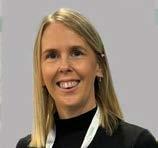
When care staff help shape the system, rather than simply following it, true quality can be delivered.
VIVALDI is more than a project; it’s an opportunity to rethink how care and research work together. And for the care workforce, it’s a reminder: You belong in this conversation. Your experience isn’t just valuable—it’s essential.
This pilot ensures our voices and experiences shape the future of care. Too often, policies are made without fully understanding the daily challenges. This pilot creates a space where our insights can inform real change—helping regulators and policymakers design systems that are practical, person-centred, and responsive. By sharing what works and what doesn’t, we can improve training, support, and safety standards. I believe this will lead to more respectful, realistic policies that truly reflect the needs of those giving and receiving care.
For more information on VIVALDI Social Care, click here or follow the QR code below.
The OS is a Community Interest Company, free to all providers irrelevant of their rating. It is a platform to share and celebrate best practice, help others to improve and promote careers in Social Care. Please contact Sonia (info@theoutstandingsociety.co.uk)

As part of the Alzheimer’s Society’s Dementia Action Week, Boots recently launched a nationwide initiative to spark conversation and rekindle memories for those affected by dementia.
As the UK’s leading health and beauty retailer, Boots created over 1,000 multi-sensory memory boxes which have been distributed to care homes and communities across the UK.
The initiative follows research by Professor Victoria Tischler and colleagues from the Universities of Surrey, West London and Nottingham that supports the connection between smell, handling familiar objects and memory,1 conducted using the Boots Memory Boxes.
In many people with dementia, handling familiar objects that combine distinctive smells, and attractive designs can provide wellbeing benefits including enhanced mood, social inclusion and memory retrieval. Simple prompts like familiar smells from a person’s past can stimulate recall and bring people into the present moment.
The Boots Memory Boxes are filled with items carefully selected by the Boots Archive team and include familiar smells and sounds to trigger

memories. For example, popular toiletries and soaps can remind them of a loved one and cough medicine or bath salts can help them remember times they looked after themselves or others. The boxes will also feature items with familiar sounds, like the click an old powder compact, or camera.
1 D’Andrea, Dening and Tischler (2022) Object Handling for People With Dementia: A Scoping Review and the Development of Intervention Guidance | Innovation in Aging | Oxford Academic
Further details can be found at:
Treasured Items information: Treasured items from Boots can help rekindle memories for those with dementia
Treasured Items video: https://m.youtube.com/ watch?v=E--CPM5xmR8
So what happens when that trust doesn’t land early on? Ultimately, if you can’t show your value upfront, someone else will. Families swipe left. They bounce off the website. They opt for another provider whose online presence looks more transparent, even if the care itself isn’t any better.


Leadership has always been central to the success of social care. Strong leaders inspire teams, uphold standards and create a culture where people feel supported to deliver their best work. But when leadership confidence or capability is lacking, it quickly affects recruitment, compliance, morale and, most importantly, the quality of care experienced by the people we serve.
Over the past four years, I have been researching how leadership development in social care can be improved. What I have consistently found is that there is a clear gap between the preparation leaders currently receive and the realities of their roles. In recent surveys, 95.3% of learners reported that training left them underprepared for the responsibilities they were expected to carry. Meanwhile, 64% highlighted that leadership shortfalls had a direct impact on the quality of care delivered.
It is this challenge that inspired me to create the Social Care Leadership Academy (SCLA). Drawing on my own experience as a registered care home manager, as well as years of auditing and supporting leaders in practice, I wanted to develop something that would build real confidence and competence.
The programme is structured around 12 modules and is taught by respected consultant Tim Dallinger, who brings deep expertise in developing care leaders. Delivered over six months, the course combines on-demand learning with monthly drop-in sessions. Each module includes assignments designed to help learners apply insights directly to their workplace. This balance of flexibility and accountability means that the learning is not just theoretical, but practical and rooted in the day-to-day demands of leadership.
A distinctive feature of the Academy is its learning platform. Developed by neuroscientists at the University

of Oxford, it applies cutting-edge research into how adults learn most effectively. This helps ensure that the material is not only engaging but also retained and used in practice.
Interest in the programme has already been strong. Some learners are studying independently, preparing themselves for future roles such as registered managers or home care business owners. At the same time, providers have shown interest in incorporating the course into their academies or developing bespoke pathways that suit the needs of their leadership teams.
For me, the importance of this work goes beyond any single programme. Leadership is the foundation on which high-quality, sustainable care services are built. If we want to improve recruitment, strengthen compliance and lift morale across the workforce, we must equip leaders with the skills, confidence, and support they need to thrive.
The Social Care Leadership Academy is one contribution to meeting that need. It won’t solve the leadership challenge overnight, but I believe it offers a practical, research-informed way to support the current and future leaders on whom the future of care depends.
For more information, visit:
LinkedIn: Social Care Leadership Academy
YouTube: Social Care Leadership Academy



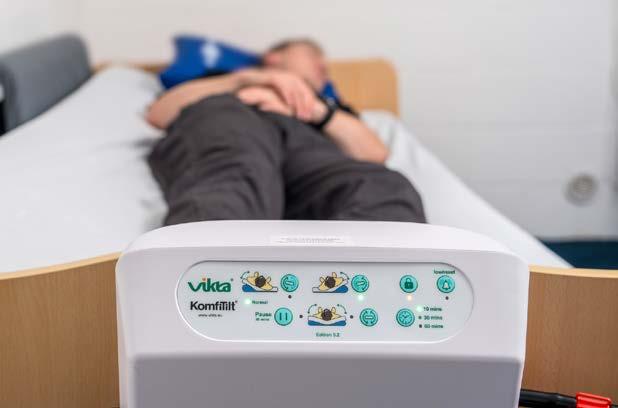
Pressure Care Management delivers bespoke evidenced-based pressure care and postural positioning solutions designed to prevent and heal pressure injuries. From lateral tilting devices to advanced cushions and support surfaces, our tailored range enhances comfort, promotes independence, and improves quality of life
Improves comfort & dignity for your most vulnerable
Simple integration into existing care routines and documentation.
Support resident independence and reassure families
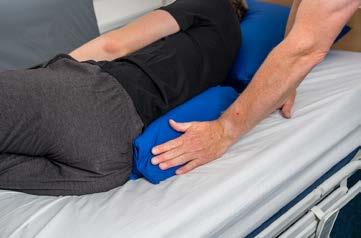
Trusted by care providers across the UK
Robust, hygienic, easy to use
Reduces pressure ulcer incidence and hospital admissions.
On-site clinical training and rapid-response support for your staff
“My patient has slept all night for the first time in a long time! She doesn’t notice the system turning her, but knows that it is, as her position has changed when she wakes up Her partner doesn’t need to get up during the night anymore, resulting in both parties having an undisturbed, full night of sleep. From a therapy perspective, this equipment has met all goals set ”